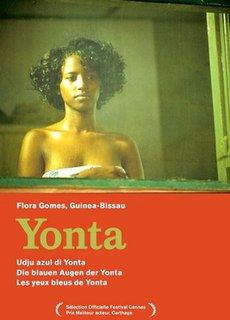
A documentary film or documentary is a non-fictional motion-picture intended to "document reality, primarily for the purposes of instruction, education or maintaining a historical record". Bill Nichols has characterized the documentary in terms of "a filmmaking practice, a cinematic tradition, and mode of audience reception [that remains] a practice without clear boundaries".

The cinema of Japan has a history that spans more than 100 years. Japan has one of the oldest and largest film industries in the world; as of 2021, it was the fourth largest by number of feature films produced. In 2011 Japan produced 411 feature films that earned 54.9% of a box office total of US$2.338 billion. Films have been produced in Japan since 1897, when the first foreign cameramen arrived.

Forgotten Silver is a 1995 New Zealand mockumentary film that purports to tell the story of a pioneering New Zealand filmmaker. It was written and directed by Peter Jackson and Costa Botes, both of whom appear in the film in their roles as makers of the documentary.

Paul Rotha was a British documentary film-maker, film historian and critic.

Bill Nichols is an American film critic and theoretician best known for his pioneering work as founder of the contemporary study of documentary film. His 1991 book, Representing Reality: Issues and Concepts in Documentary, applied modern film theory to the study of documentary film for the first time. It has been followed by scores of books by others and by additional books and essays by Nichols. The first volume of his two-volume anthology Movies and Methods helped to establish film studies as an academic discipline. Nichols is Professor Emeritus in the Cinema Department at San Francisco State University and Chair of the Documentary Film Institute advisory board.
Safi Faye is a Senegalese film director and ethnologist. She was the first Sub-Saharan African woman to direct a commercially distributed feature film, Kaddu Beykat, which was released in 1975. She has directed several documentary and fiction films focusing on rural life in Senegal.
Kaddu Beykat is a 1975 Senegalese film directed by Safi Faye. It was the first feature film made by a Sub-Saharan African woman to be commercially distributed and brought international recognition for its director. Centred on a romance, it chronicles the daily lives of people in a rural Senegalese village.

Fumio Kamei was a left-wing Japanese documentary and fiction film director.
Akira Iwasaki was a prominent left-wing Japanese film critic, historian, and producer. Born in Tokyo, he became interested in film from his student days at Tokyo University. Early on, he helped introduce German experimental film in Japan, and was instrumental in getting Teinosuke Kinugasa's masterpiece A Page of Madness screened in Tokyo. Afterward, he became involved in Marxist politics and established a career promoting progressive cinema and criticism. He wrote or edited over thirty books of film criticism, history, theory and biography during his career. He was also involved in film production, first serving from the late 1920s as a central member of the Proletarian Film League of Japan (Prokino), where he acted as not only the theoretical brain of the movement alongside Genjū Sasa, but also as a filmmaker. When Prokino was effectively eliminated by police oppression under the Peace Preservation Law, Iwasaki continued his critical activities, becoming involved in the Yuibutsuron Kenkyūkai with such thinkers as Jun Tosaka, but was eventually arrested in 1940, in part for his opposition to the Film Law, which authorized increased government control of the film industry. He was the only film critic arrested by the ideological police during the war. After his release, he worked for a time at the Tokyo office of the Manchukuo Film Association thanks to the help of Kan'ichi Negishi.

The Proletarian Film League of Japan was a left-wing film organization, known as Prokino for short, active in the late 1920s and early 1930s in Japan. Associated with the proletarian arts movement in Japan, it primarily used small gauge films such as 16mm film and 9.5mm film to record demonstrations and workers' lives and show them in organized events or, using mobile projection teams, at factories and mines. It also published its own journals. Most of its films were documentaries or newsreels, but Prokino also made fiction films and animated films. Prominent members included Akira Iwasaki and Genjū Sasa, although in its list of supporters one finds such figures as Daisuke Itō, Kenji Mizoguchi, Shigeharu Nakano, Tomoyoshi Murayama, Kiyohiko Ushihara, Kogo Noda, Takiji Kobayashi, Sōichi Ōya, Fuyuhiko Kitagawa, Tokihiko Okada, Matsuo Kishi, Kiyoshi Miki, Denmei Suzuki, Teppei Kataoka, and Shigeyoshi Suzuki. The movement was eventually suppressed by the police under the Peace Preservation Law, but many former members became prominent figures in the Japanese documentary and fiction film industries.
Genjū Sasa was a left-wing Japanese film director and film critic. He was a founding member of the Proletarian Film League of Japan (Prokino), providing inspiration to the movement through his writings and his films.
Kazuo Kuroki was a Japanese film director who was particularly known for his films on World War II and the question of personal guilt.
This is a bibliography of reference works on film by genre.
A list of reference works on the horror genre of film.
This is a list of books and essays about Clint Eastwood.
A list of books and essays about Robert Bresson:

Here's Berlin or Hello Berlin, Paris Calling is a 1932 French-German romantic comedy film directed by Julien Duvivier and starring Josette Day, Germaine Aussey and Wolfgang Klein.

Adolescence of Cain is a 1959 Venezuelan film and the first film of the Venezuelan filmmaker Román Chalbaud. It was based on his homonymous theatre play. The widow Juana moves to the slums of Caracas with her son Juan. The film follows the impact of poverty on their relationships.

Udju Azul di Yonta / The Blue Eyes of Yonta is a 1991 Portuguese film, the second film by the Bissau-Guinean director Flora Gomes. The government of Guinea-Bissau helped in production, together with the Institute of Cinema in Portugal, Vermedia Productions, and Portuguese television.
The cinema of São Tomé and Príncipe does not have an extensive history, since São Tomé and Príncipe is not a large island. However there has been some filmmaking.